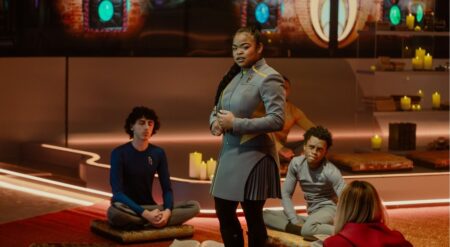Netflix has an ever-growing list of young adult series. Forever (2025), an original series based on Judy Blume’s groundbreaking 1975 novel of the same name, continues that track record. Pitched as a story reimagined for a new generation, writer-director Mara Brock Akil tells an epic love story of two Black teens exploring romance and their identities in 2018 Los Angeles. With a cast of young up-and-coming actors, Forever (2025) puts a lens on an awkward journey of being someone’s first, well, anything.
Forever opens with Justin Edwards (Michael Cooper Jr.) asking to go to a New Year’s Eve party as his friend’s plus one. Held at a classmate’s house (from his predominantly white school), Justin’s parents are apprehensive. Where his mom guilt-trips him to try and have him celebrate at home, Justin’s father (Wood Harris) encourages him, but with some ground rules.
When Justin arrives, he’s a fish out of water. That is, until Keisha Clark (Lovie Simone) shows up. Having gone to elementary school together, Keisha and Justin hit it off immediately. Well, after Keisha reminds him who she is. Their chemistry is instantaneous, and a midnight kiss to ring in 2018 starts a young love that defines their year.
Over eight one-hour episodes, Forever moves back and forth between its dual protagonists. One episode will show Justin’s perspective, the next will show Keisha’s, and sometimes a tense situation will be viewed by both as one episode ends and another begins. They’re equal in this story, and it’s refreshing to see. While both Keisha and Justin deal with large emotions and important decisions, Forever never forgets that they’re children.
Young love may be the focus of this Judy Blume adaptation, but maternal relationships shine just as much.
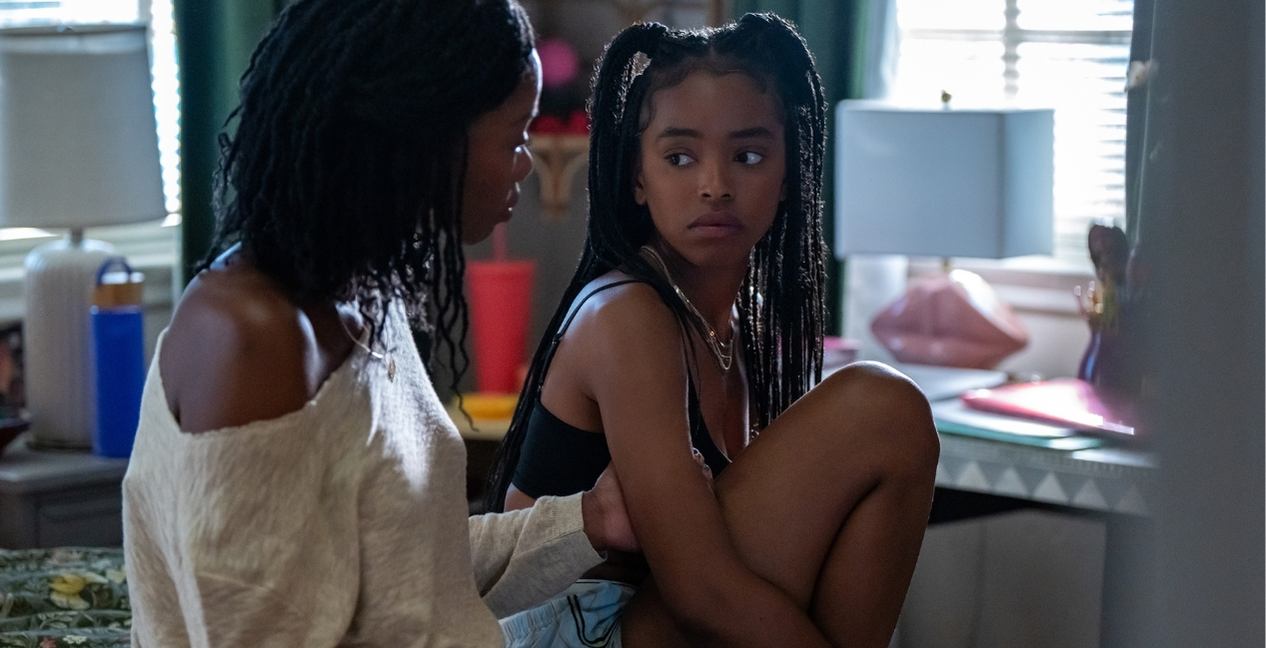
One of the important ways that Mara Brock Akil does this is by giving the audience a large look into their homelife. Justin’s parents are well-off, but neither of them is detached. They shape Justin, and while his relationship with his father takes the stage early on, it’s his relationship with his mother that really stands out. Played by Karen Pittman, Dawn is dedicated to ensuring her son succeeds. She’s strict when she needs to be and loving when the time calls for it.
In one moment, the running joke is that she just wants Justin to marry a Black girl. But in the next scene, she tells him that as much as she wants that, she doesn’t want to disrespect him. It’s clear that the two have such a close relationship that she understands him and his worries, even when he’s not vocalizing them. It’s heartwarming and beautiful.
For Keisha, her mother, Shelly (Xosha Roquemore), is a single young mother who lives with her grandfather as well. While their relationship isn’t as close as Justin and his mother’s, it’s as close as possible. Primarily because Keisha understands the weight her mom carries to provide for her, she can see the budgets that are all balanced as carefully as possible to send her to a private school with the hopes of making it to Howard.
But because she understands that, she tries to hide why she wants to change schools and how hard it is to keep going to school when everyone has seen her as the girl in a video. But as the two get closer over the course of Forever Season 1, Keisha learns that she doesn’t have to carry all of that worry on her own. Her mother is there for her.
More importantly, however, is that Dawn and Shelly, as the season progresses, are there for each other. When the private school their children go to says that it “takes a village,” Dawn points out that it doesn’t include “our children.” It doesn’t include Black children, or any child who doesn’t fit the default expectations that always end up being white and middle-class. So, Dawn is there for Keisha as much as she’s there for Justin. As Shelly learns more about her daughter’s secret, she also starts to be there for both of them.
Forever (2025) celebrates joy as much as drama from the very beginning.
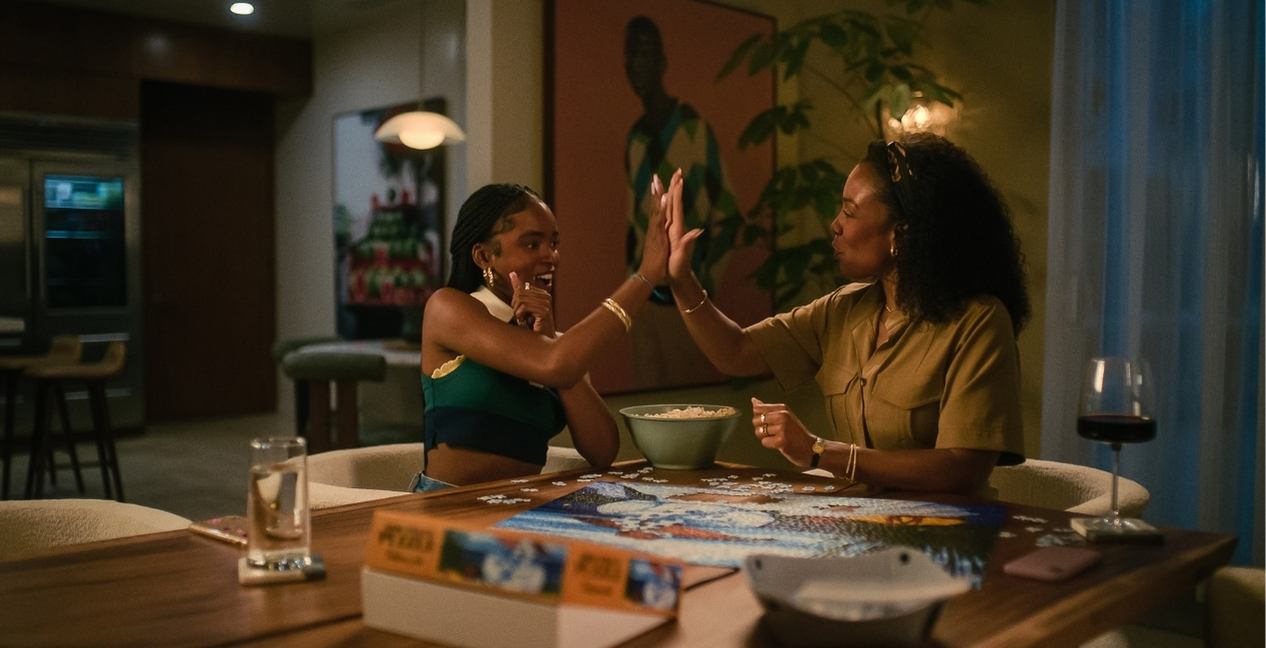
It’s rare for stories about Black teens to celebrate their joy, their love, and coming of age without some kind og racialized trauma as central to the narrative. Even when you look at series like On My Block, which focused on Latino and Black teens in Los Angeles, gang life and trauma surrounded them. Coming of age for those teens was awkward and joyous, but it was also surrounded by violence. Forever isn’t without its own set of bad circumstances.
The primary driver for Keisha’s insecurity comes from a sex tape being shared of her. But while the series doesn’t shy away from the realities and prejudices that impact the lives of Black teens, Forever is ultimately about them being teens. Young and dumb, growing and learning about who they are and, more importantly, who they want to be.
When it comes to Judy Blume adaptations, there are many good ones. However, most stick to period pieces or still just center white protagonists. However, Blume’s work was universal, and her advocacy ensured every young person was represented and respected. Forever picks up that legacy by crafting a teenage love story that allows its characters to struggle but ultimately have a future and a life outside the confines of stereotypical restrictions we often see in YA stories centered on teens who aren’t white.
Instead, the way that Keisha talks with her friends, how Justin talks to his, feels like it’s lifted from life, not a page. This makes Forever a sentimental story that captures young adulthood in all of its awkwardness and happiness, as well as the moments when the world feels like it’s going to fall apart. In fact, Forever is more akin to Netflix’s Heartstopper than it is to On My Block.
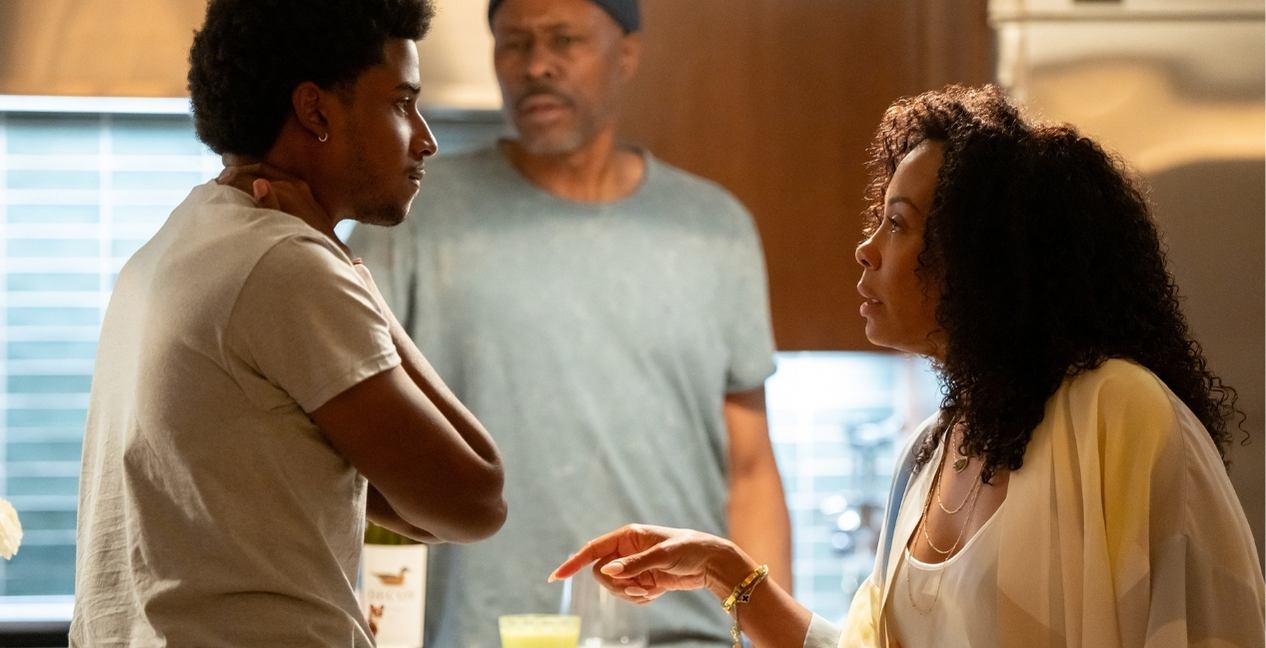
I keep comparing these two shows because whether it’s Black teens or Latino teens, our childhood, our coming of age stories, don’t make it on screen nearly as often as they should. And when they do, they’re almost always surrounded by melodramatic violence instead of handling the realities of how the world sees us, but also showing that that does not define us. Heartstopper does for LGBTQ+ teens what I had always hoped we’d see for non-white stories of growing up. Forever stands beside it as a show that says your girlhood and boyhood matter just as much as others we see represented.
But the real way that Forever succeeds is that its drama is always messy. Not messy in the lesson of the week type of way, though, messy in how we were when we were young. Not knowing how to text back, jumping to assumptions, letting our fear of failing stop us from starting. Keisha and Justin make mistakes from the very beginning of the series. They like each other. They hit it off. Ultimately, the audience knows their love story is one to root for. But they can’t stop getting in their own way.
Keisha and Justin are stubborn and vulnerable. Still, in their vulnerability, they make assumptions and make mistakes fueled by their anxieties. Regardless of what grounds them, it is that they want to love the other person, but more importantly, they want to be loved too.
Justin is carrying his own self-esteem issues from not being taken off the bench in his basketball games. He’s worried about failing, about not living up to his parents’ standards. Keisha holds the trauma of everyone in school seeing an intimate act and being pushed out because of it, all while her jock superstar ex-boyfriend was celebrated. On top of that, Keisha’s family struggles financially despite her mother’s love and push to give her what she needs.
Forever (2025) allows its protagonists just to be teens, and that’s messy, in an authentic way.
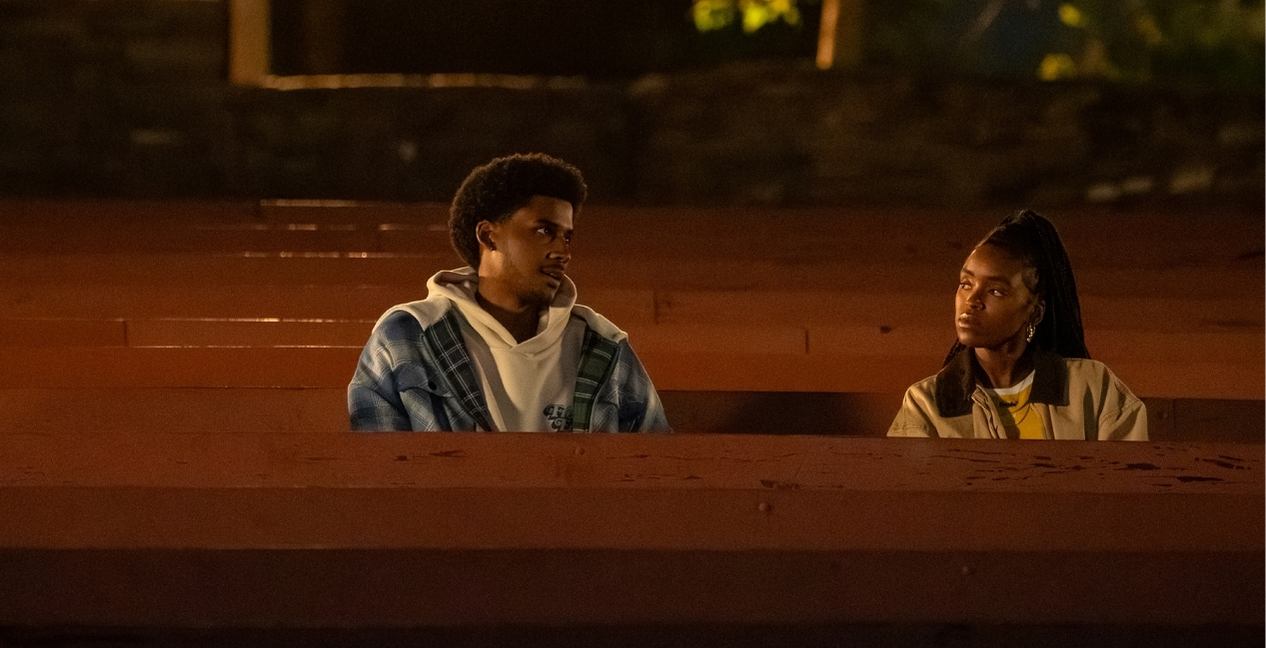
Forever makes its characters directly confront their insecurities and lets them breathe. These elements of who they are don’t consume every part of them. One of the best examples is when it comes to episodes shown from Keisha’s perspective. We see her struggle with how Christian (Xavier Mills), her ex, who shared the video, has won over everyone in her life.
More importantly, the love everyone has for him has forced her to be the girl who stood to hurt his chances with the video. But instead of letting this anchor tie her down the entire season, she confronts him at the midpoint of Forever Season 1.
They work out together after he uses her mother to stay in her life, and at the end, when Christian tries to talk to her like nothing happened, she tells him. She doesn’t yell or scream; instead, she lays it out for him and the audience to see.
Her voice cracks, and she holds back tears, and she tells Christian what his “dumb mistake” did to her. How it took her school, her track program, and her friends, and stood to take even more. When faced with the weight of his actions for the first time, Christian doesn’t try to defend himself. While he admits it was a mistake and uncalled for at first, he stops pushing back and trying to brush it off.
Keisha’s storyline is one of the best examples of how to have difficult conversations and why they need to happen.

Instead, he stands there silently, and we see his eyes redden, the weight of every repercussion hitting him. It’s an emotional scene and one that doesn’t look to cast Christian as an irredeemable villain. Instead, he’s a dumb teenager. He’s not forgiven for his transgression, but in his understanding of his impact, it’s clear that he knows what he’s taken from her.
There is a lot to say about actions like this in both real life and entertainment. Forever is trying to look at each of the teen cast as they are, as children who don’t know any better. But ignorance doesn’t remove impact, but in the eyes of the showrunners, it also shouldn’t condemn to a life of punishment. The blame lies at Christian’s feet, and it’s clear that Keisha isn’t to blame.
Still, Christian isn’t cast as a teen who deserves his life to be taken away. Instead, he’s shown as a scared teenage boy who didn’t fully see the pain he caused. This throws away the trope we often see with characters that do what Christian did, and that matters.
While Keisha and Justin are dual protagonists, Keisha’s story shines the brightest. This is not because Justin and the actor who plays them aren’t compelling. They are. Instead, it’s because I could see myself in Keisha. In her relationship with her mother, she bottles her anger and her sadness, but also how much she just wants to be a regular girl. She just wants to go to prom, she just wants to be in love, she just wants a future. I can see myself in her, and her joy is cathartic as she succeeds.

Both leads in Forever (2025) aren’t alone in navigating the world. I’ve already discussed Keisha and Justin’s parents, whose relationship with their children only grows throughout the season and even more when both mothers spend time with their children’s significant others. What I haven’t touched on is how important having support systems and best friends is to Keisha and Justin.
As much as we see the couple together, we also see their best friends, Chloe (Ali Gallo) and Darius (Niles Fitch), counsel them. Sometimes better than the other, and other times stuck in teenage hormones first ways. But the important thing is that they both have people in their corner, even when the dramatic elements of the series affect those relationships.
Friendship in Forever (2025) matters just as much as romance, and that’s an important takeaway for young viewers. It’s what made Heartstopper stand out, and it’s the same thing here. This is particularly important for Keisha. Even when the world feels like it’s entirely against her and she’s lost everything she knows, she has Chloe. She has a friend to lean on, to give her a gut check, and to cry with or laugh with, too.
Forever’s beauty as a Netflix Original series is that it’s a story you can fall into, and for the first time, it’s one where I can see my girlhood. But much of that isn’t just because of the hardship that Keisha faces, it’s in her ability to find joy, to push to be the best, and to accept that she deserves to be a girl and not a woman just yet. This coming-of-age story puts a value on girlhood, not just on the transition, and that’s what sticks.
Forever (2025) belongs in the lexicon of Young Adult media, watched and recommended to all.

I can see a parallel track for Justin, but I lack the depth beyond understanding how much Forever bucks masculine tropes to discuss it. In that vein, though, Justin is a character I wish I had met when I was Keisha’s age. He’s sensitive and caring, always worried about not just saying the right thing but actually doing the right thing.
It would be easy for Justin to fall into the teenage boy pitfalls we see from his best friend or the other jocks, but instead, he remains awkward and loving. He has flaws, but it’s in his joys, like seeing him talk about anime or why he started playing basketball, that you can’t help but just want him to be happy.
Forever also doesn’t shy away from showing the reality of what Justin has to face as a Black teen. He has honest conversations with his father about what to do when the cops pull you over, and the series speaks loudly about the fears that come with Justin getting a new car. Still, Forever Season 1 doesn’t live in the adversity that Justin has to face, instead it’s simply a fact of life.
At moments, his mother wants to let it keep him from doing more. To keep him at home and keep him safe. But for his dad, he sees it all as an opportunity to prepare Justin for a life he will have to live. He wants Justin to grow up, and that’s what this series is: it’s about growing up.
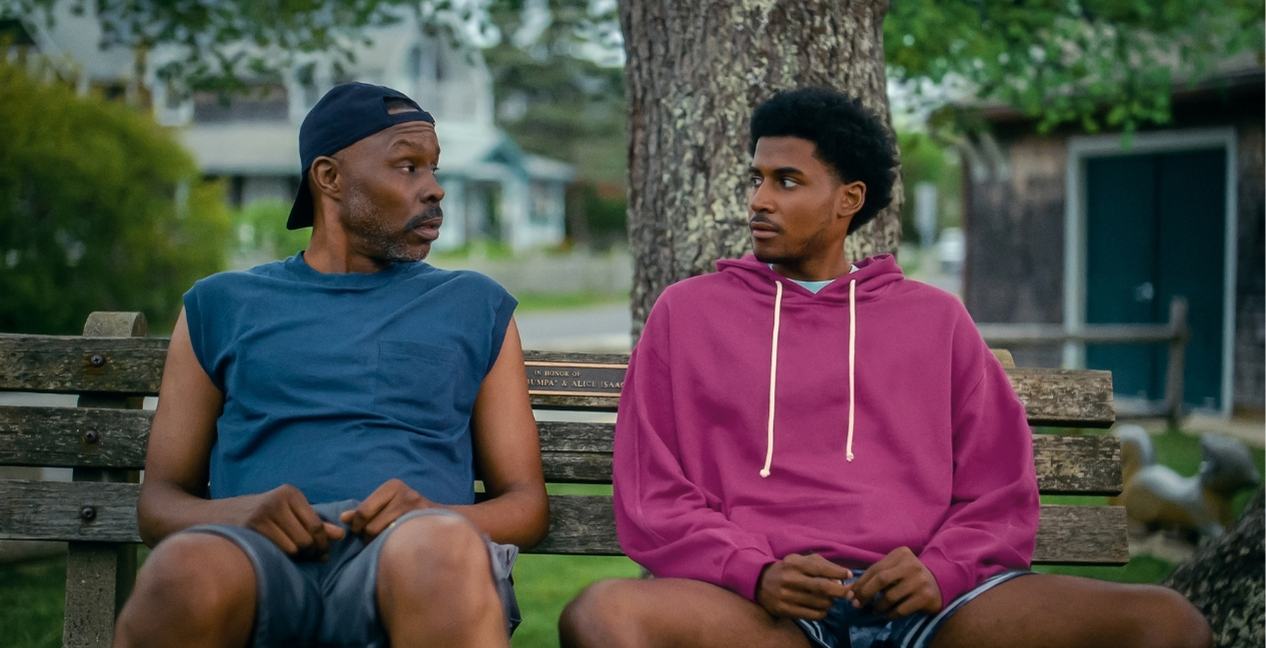
Additionally, Forever is one of the few shows that highlights neurodiversity. Justin is intelligent and has a talent for music that outshines others. But he struggles in traditional schooling, and this series handles his difference with grace because it lets the audience see him thrive with it. It’s not all roses, though. He butts heads with his mother who wants so see Justin go to a top college, and doesn’t mince words when it comes to tell him that he isn’t on the same playing field as others. She tells him, “You have to be undeniable.”
That’s the weight Justin has to carry, but the conversation leans into the love a parent has and how difficult it is for them to show it through something other than pushing their child forward. To top it all off, Justin is never told to hold in his sadness or his frustration. He talks to his parents, he feels his worries, and there is always a way for him to find solace.
Forever is a Judy Blume story that may be timestamped at 2018, but it’s timeless in every way. Keisha and Justin embody the best of young adult protagonists. It just so happens that the best comes by honoring the messiness of life, our teenage mistakes, and ultimately that our futures mean something as much as our present.
In that way, Forever (2025) stands as a necessary viewing and an essential entry into the young adult lexicon. If Are You There God? It’s Me, Margaret was a story about our relationships with our mothers. Forever is a story about our relationships with others and how we build the foundation of who we become next.
Forever (2025) is streaming now on Netflix.
Forever Season 1
-
Rating - 9/109/10
TL;DR
Forever is a Judy Blume story that may be timestamped at 2018, but it’s timeless in every way… Forever is a story about our relationships with others and how we build the foundation of who we become next.



